
More than 46 percent of Mexico’s population lives in poverty, according to UNICEF. Close to 53 million people lack access to education, health care, transportation and even the most basic necessities such as food and shelter. Youth in the country face a higher rate of poverty at more than 53 percent, which accounts for 20 million children and adolescents — with 5 million of those living in extreme poverty. In Mexico City, the country’s capital, poor residents lack safe drinking water and sanitation. Incidents of crime and violence are high within the region. According to UNICEF, close to 240,000 abandoned children live on the streets of Mexico City and up to 90 percent of those have faced sexual exploitation by an adult.
Salesian programs in Mexico serve poor and at-risk youth, as well as migrant populations who have reached the Mexican-United States border from Central and South American countries seeking a better life. Education, technical skills training, workforce development, health clinics and socio-sports programs all aim to help reduce poverty and provide hope for a better future.
Innovative Salesian programs in Mexico are preventing poor children from dropping out of school and are providing important opportunities for their future. At-risk children take part in Salesian programs that integrate education, social activities and technical training. Classes are also offered in sports, music, dance and drama and give youth access to safe environments and adults who serve as mentors. The goal is to guide youth back into mainstream education so that they can reach their full potential.
The Laura Vicuña A.C. network provides education and shelter to youth, particularly girls, who are living in poverty in Mexico. Participants in the network attend Salesian-run elementary and secondary schools and are provided safe shelter, nutrition, clothing and school supplies.
The Salesian sisters who run the programs support poor youth struggling to survive with a place to live while meeting their basic needs and providing education and training in social skills to prepare them for the future. Health education is also an important part of the program and is offered to all participants.
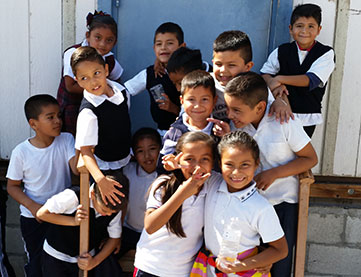
In the center of the Oaxaca highland, Salesian missionaries operate the Institute for the Advancement of the Indigenous Community, which bring hope for a better life through education and workforce development for local indigenous youth. Salesian programs serve local youth through a primary and secondary school as well as a boarding school, all open to both boys and girls. Currently, Salesian missionaries oversee 45 boys in the program while the Daughters of Mary Help of Christians care for 53 girls.
Fifty years ago, Salesian Bishop Braulio Sánchez dreamed of educating youth within the Mixepolitana region in Mexico. His dream slowly became a reality thanks to the support of the local population, which contributed generously to the best of its ability to provide the materials to build a school. The initiative also had the unconditional support of the local Salesian Province. Many others financially contributed to help Salesian missionaries complete the construction of the school, knowing that the goal was to help support local youth through education while also providing them social and life skills and other basic services they needed.
This year marks the 50th anniversary of the founding of the institute, which over the years has distinguished itself as an educational center that provides high-quality education and services to the local community. Many of its past pupils now occupy senior positions within their communities. They include people committed to seeking what’s best for the common good, public officials or politicians, and also priests and religious brothers or sisters.
Since 1987, the Salesian-run Tijuana Project has been providing services to migrants and poor youth living on the border between Mexico and the United States. The goal of the project is to create an extensive educational network in areas where poor youth are at risk of social exclusion, exploitation and child labor. The project took shape through Salesian oratories and educational centers where children grow up learning to share faith, culture and sports within their communities.
Many border towns are plagued by crime and violence such as the illegal trafficking of drugs, weapons, money and people, and the consequences of social and political tensions between the two nations are felt. Salesian missionaries have been working in Mexico and in these border towns for more than 25 years and have recently increased cooperation between the Salesian Province of Mexico-Guadalajara and the Province of USA West. The goal is to work together to address the increase of violence and insecurity in the region and launch proposals for education, social integration, drug prevention and combating the effects of organized crime.
Currently, the Tijuana Project is serving more than 9,000 people in six Salesian oratories, a parish and a public dining hall which serves food to close to a thousand homeless and migrant people every day. The entire project is facilitated by six Salesian missionaries with the help of volunteers, local collaborators and benefactors in both Mexico and the U.S.
The Laura Vicuña A.C. network provides education and shelter to youth, particularly girls, who are living in poverty in Mexico. Participants in the network attend Salesian-run elementary and secondary schools and are provided safe shelter, nutrition, clothing and school supplies.
The Salesian sisters who run the programs support poor youth struggling to survive with a place to live while meeting their basic needs and providing education and training in social skills to prepare them for the future. Health education is also an important part of the program and is offered to all participants.
Salesian missionaries working in Mexico City are directing their efforts toward the country’s at-risk population, including girls and mothers living on the streets. Innovative programs are preventing poor youth from dropping out of school and are providing them important educational and training opportunities.
Through the “Yolia” program, girls and young women are able to spend their days at a Salesian center in the city where they can have meals, receive tutoring, obtain therapy and learn job skills such as jewelry making and hair styling. Some girls choose to live in the residential area where they receive additional education and services while finding a renewed sense of dignity and self-worth.
Most of the girls in the program are adolescents but some have been as young as 3 years old and abandoned by their families. Salesians work with the young girls to provide for their basic needs so they are better able to focus on their studies. Salesian staff members, including Salesian Lay Missioners, teach English classes and bring the girls to and from school. Additional tutoring is offered to help the girls with their studies as well as vocational programs to provide older girls with skills for employment. In addition, therapy is available to help face the emotional challenges resulting from the violence and exploitation the young women have endured.
The “Yolia” program empowers young women to overcome the discrimination they have faced while giving them a greater awareness of their rights. It focuses on building character while allowing the young women the freedom to make decisions that affect their lives, improve their health and boost their work prospects.
Between May 2016 and January 2017, Salesian missionaries faced a wave of Haitian migrants at its Salesian center, Desayunador Salesiano, in Tijuana. Haitian migrants arrived dizzy, exhausted, cold, hungry and broke after their three-month land journey from Brazil. Some were sick. Some had delivered babies or miscarried along their route. Others had family and friends die during the journey. Migrants also faced crime and exploitation as they traveled through Central America.
At the peak of the migration in December 2016, there were 480 Haitians — men, women, and children — living at the Salesian shelter, which was only designed for 80 guests. They slept on the floor or they slept outside. With President Trump’s January 20 inauguration, the Haitian wave of migrants stopped as abruptly as it had begun. The deportation rate in the United States had soared to more than 70 percent of those who attended their scheduled U.S. immigration hearing.
With very little in Haiti to go back to and the oppressive stigma borne by those have been deported, the Haitians who remain in Tijuana have opted to apply for Mexican residency. Many of them have found jobs, settling for $10 a day for 10 hours’ work. Many others faced racial discrimination and can’t find work. Those who can have rented one-room apartments in the only neighborhood they can afford, the Zona Norte, right along the U.S.-Mexican border. This area is known as drug cartel territory and has high rates of human trafficking.
The Salesian Center is currently housing 70 Haitian migrants in addition to the 5,000 who came to the programs over the last year to receive services, shelter and assistance. Salesian missionaries are helping with online residency papers and obtaining Haitian passports. Three young Haitian men have joined the staff of the Desayunador Salesiano and are working to aid the continued effort of assistance for these Haitian families. The Salesian Center is also working with Mexicans who have been deported from the U.S. and have nowhere else to go.
Youth in Salesian programs in Mexico City have better access to sports and recreation thanks to a recent donation of 5,700 soccer balls. The donation was made possible through a partnership between Salesian Missions and One World Play Project (also known as One World Fútbol), an organization dedicated to bringing the healing power of play to youth worldwide by making, selling and distributing nearly indestructible balls that survive the harshest environments.
Sports programs teach valuable skills to youth both on and off the field. They offer unlimited opportunities for growth by simultaneously developing leadership, teamwork and social skills. The recent ball donation made possible by Salesian Missions and One World Play Project benefited youth at Salesian centers, schools and programs in the Mexico City area. The balls have been utilized during the school day for sports training, as well as afterschool activities.
Since receiving the donation, young athletes have shown more confidence and this motivates them to practice with more dedication, commitment and enthusiasm. Their health has also improved since the exercise on the field helps increase their energy and overall physical and mental health. Students are also performing better in their studies and other activities. At the same time, students are showing more honesty, teamwork and compassion.
Salesian missionaries working in Ciudad Juárez operate three oratories that sit on several hectares of land, each in different parts of the city. More than 5,000 people visit the oratories every week to access the programs tailored for people of all ages. Salesian missionaries arrived in Ciudad Juárez 28 years ago and built their first oratory, San Juan Bosco, on land that was once a landfill. Years later, the Domingo Savio oratory was developed and finally the Lupita oratory was established, the name an abbreviation of Our Lady of Guadalupe.
The oratories in Ciudad Juárez open their doors at 8:30 a.m. and close late at night, offering a series of uninterrupted activities, seven days a week, 365 days a year. In the morning, activities and workshops are held for mothers while children are at school. In the afternoon, parents get a break while children are entertained and offered a chance to learn.
There are also sports schools, martial arts sessions for children and adults, dance, circus workshops, painting and writing workshops, skateboarding lessons, parkour, free-climbing and zip line. There’s even a game of their own invention, “three-way soccer”, with three teams of three participants each and the team receiving the least goals winning. Many of the children who had spent considerable time in the oratories growing up are now the educators and volunteers who give life to the activities taking place throughout the city.
Salesian missionaries are providing services to close to 500 migrants who have just reached Tijuana and are from the recent migrant caravan coming from Guatemala and Honduras. Missionaries are expecting thousands more in the weeks to come. Salesian Father Agustín Novoa Leyva facilitates the Tijuana Salesian Project which operates a center, an emergency shelter and the Salesian Padre Chava Refectory.
Fr. Leyva has indicated that Salesian missionaries are doing everything they can to prepare for the number of migrants expected to reach Tijuana. He said, “From the moment these people entered Mexico, we started to prepare. But in these situations, it is very difficult to foresee everything because unlike the other cities that they were in transit, here the path of the caravan to the United States cannot proceed beyond three months, according to the latest U.S. laws.”
Each day at the Padre Chava Refectory, 900 to 1,200 meals are served with numbers increasing during Christmas, Easter and summer. Recently, the numbers have been increasing due to the influx of migrants. Salesian missionaries are already serving their maximum number of 1,200 breakfasts and they are preparing to continue at that pace. They have lined up close to 200 volunteers and supplies estimated to last about four weeks. They have also reached out to other institutions and to the government for help so they can continue their services. However, having never been granted government support before, Fr. Leyva does not think they will get any support this time either.
Students participating in Laura Vicuña A.C., a network of schools and orphanages operated by Salesian sisters in Mexico, were the recipients of new shoes as a result of an ongoing partnership between Salesian Missions and TOMS, a company that matches every pair of shoes purchased with a pair of new shoes given to a child in need. Salesian Missions is one of TOMS One for One® Giving Partners.
The Laura Vicuña A.C. network provides education and shelter to youth, particularly girls, who are living in poverty in Mexico. Participants in the network attend Salesian-run elementary and secondary schools and are provided safe shelter, nutrition, clothing and school supplies.
In 2012, TOMS began distributing shoes to youth served by the Laura Vicuña A.C. network living within communities in Tuxtla Gutiérrez, the capital city of the state of Chiapas in southeast Mexico. The area boasts a diverse cultural heritage but its residents have few economic advantages and often live in extreme poverty. Many lack adequate health care, access to clean water and sewage, education and stable jobs.
As part of Laura Vicuña A.C. school programs, Salesian sisters combine the distribution of shoes with educational workshops that focus on the importance and health benefits of wearing shoes. Prior to receiving the new shoes, many students were forced to walk to school barefoot and others wore only hard plastic sandals that caused injury. Without shoes, youth are at risk for injury, parasites, skin fungus and respiratory diseases, among others ailments. As a result of TOMS Shoes, youth enrollment and participation in school has increased, students are more prepared for school activities, and there is less frequency of illness caused by walking barefoot.
In early December 2012, a new medical clinic opened as part of a Salesian-run program in Morelia. The clinic was named after Father Alberto Durán Cabrales, rector of the Antonio de Mendoza community in Morelia. Salesian Brother Víctor López Cisneros is responsible for the clinic’s ongoing operation.
Each week, close to 600 youth access the Salesian youth center at Morelia. Here, young people are educated and given access to social services. The new clinic will provide health services for these youth as well as those in the neighboring villages and districts.
The Salesian-run Don Bosco Wheels project, operated out of Guadalajara, the capital and largest city of the Mexican state of Jalisco, unveiled a newly developed wheelchair that enables youth with physical disabilities greater mobility. By allowing for increased movement, the wheelchair results in greater inclusion and access and decreases the likelihood of sores that often result from sitting in one seat for long periods.
Started in 2010, the Don Bosco Wheels project, coordinated by Father James Reyes Retana, provides supportive services to youth with disabilities while working to ensure that their rights are respected. The project also offers educational opportunities and forges relationships between youth with disabilities and their peers.
The Don Bosco Wheels project created a committee focused on technology for greater autonomy and health. This committee is developing the personalized wheelchairs that permit users to stand on their feet and move around more freely. With a simple push of a button, a mechanism on the wheelchairs allows the seats and backrests to rise to levels required by their users.
The hope is to eventually make the chairs readily accessible to youth in the program as well as make them commercially available. While a similar wheelchair could cost up to $5,000 in the open market, the Don Bosco Wheels project wheelchairs are far more accessible costing less than $700 with the added mechanism included in the price.
In 2018, Salesian Missions received funding from USAID’s American Schools and Hospitals Abroad (ASHA) program for its Raising Standards of Care for Spinal Cord Injury Patients project. The project will construct and equip Mexico’s first comprehensive treatment and rehabilitation center to assist patients who have been paralyzed by spinal cord injuries, with a special focus on youth.
The Latin American Center for the Treatment of Spinal Cord Injuries will be built in Guadalajara as the only center in Mexico dedicated to serving the target population. The treatment center aims to promote the American values of equal access and opportunity by empowering young people with spinal cord injuries with the physical independence and renewed self-esteem needed to actively participate in society.
In order to achieve the goal, the new state-of-the-art treatment and rehabilitation center will be equipped with cutting-edge technology and innovative resources. In addition to treating patients, the center will also generate and disseminate new science and technology. In the first four years, it is anticipated that the center will treat 500 patients with spinal cord injuries, mainly youth and young adults between the ages of 12 to 35 who live in poverty and in a state of high vulnerability.
From Mexico

From Mexico
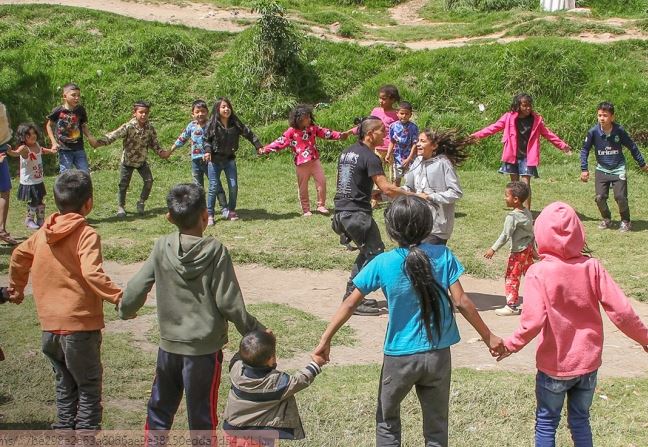
Salesians also develop programs to give youth opportunities in home countries. NEW ROCHELLE, NY (Dec. 18, 2024) Salesian Missions, the U.S. development arm of the Salesians of Don Bosco, joins humanitarian organizations and the in
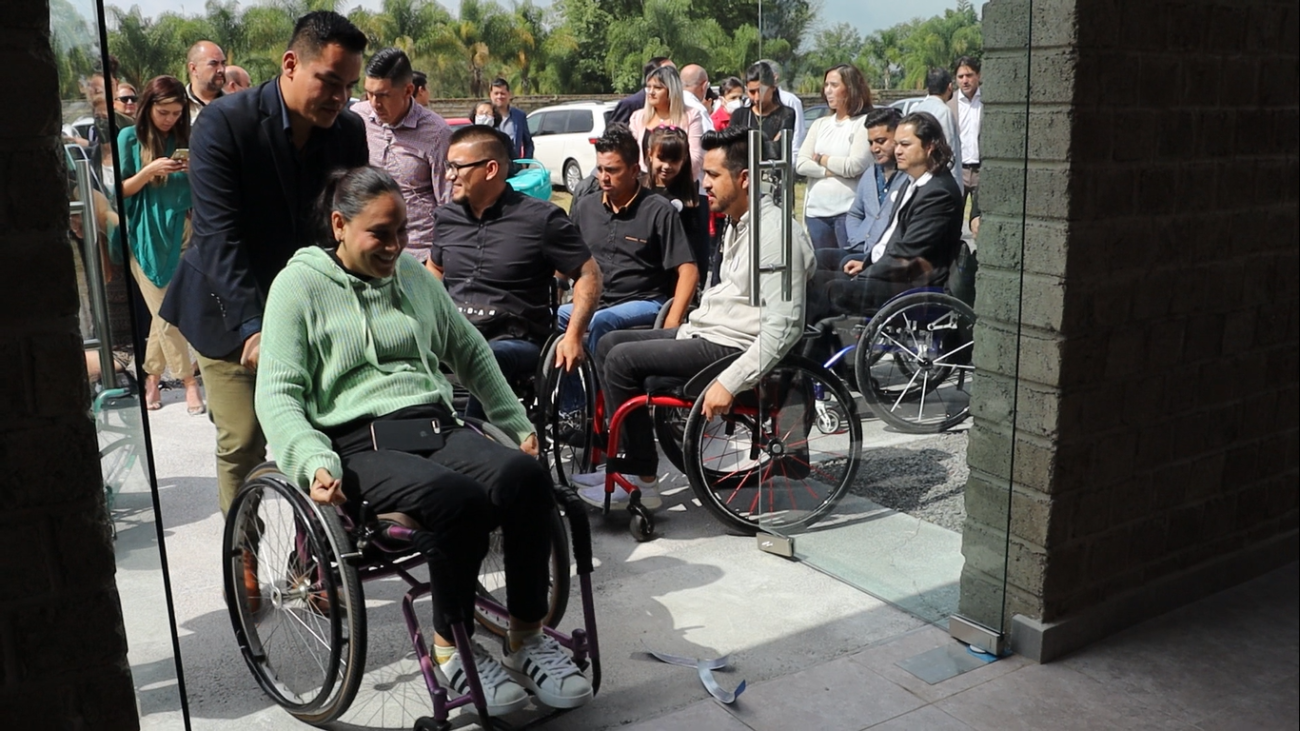
Nearly 1 billion people around the globe are living with a disability. NEW ROCHELLE, NY (Dec. 3, 2024) Salesian Missions, the U.S. development arm of the Salesians of Don Bosco, joins humanitarian organizations and countries aroun
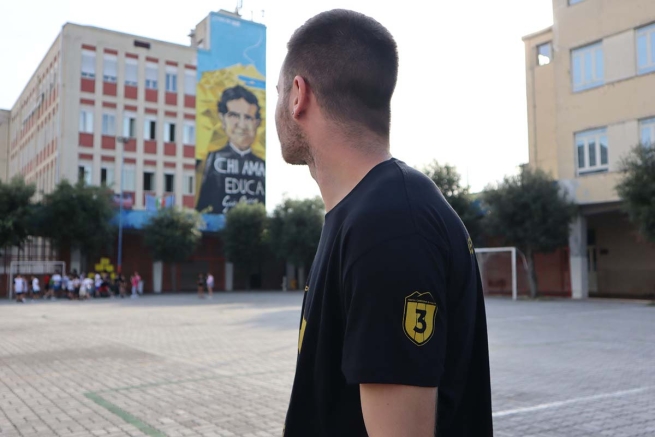
Salesians help migrants and their families access resources in their new country. NEW ROCHELLE, NY (Sept. 29, 2024) Salesian Missions, the U.S. development arm of the Salesians of Don Bosco, joins Catholic organizations around the
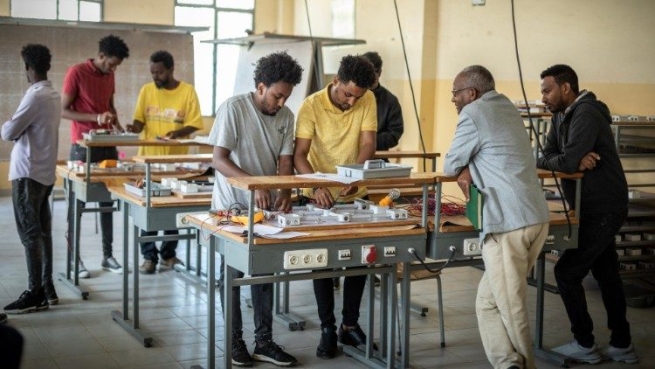
Programs provide educational services to young migrants. NEW ROCHELLE, NY (Dec. 18, 2023) Top of Form Salesian Missions, the U.S. development arm of the Salesians of Don Bosco, joins humanitarian organizations and the internationa
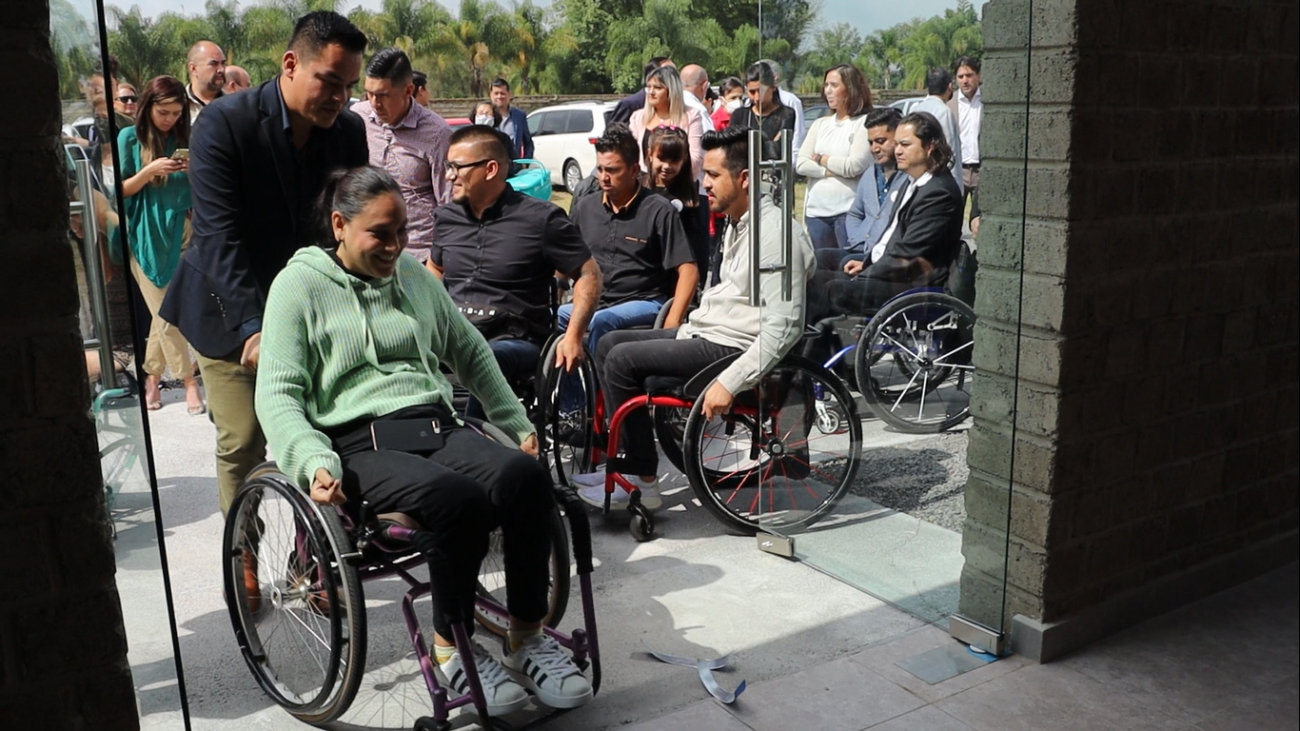
Salesian programs aid the inclusion of people with disabilities. NEW ROCHELLE, NY (Dec. 3, 2023) Salesian Missions, the U.S. development arm of the Salesians of Don Bosco, joins humanitarian organizations and countries around the
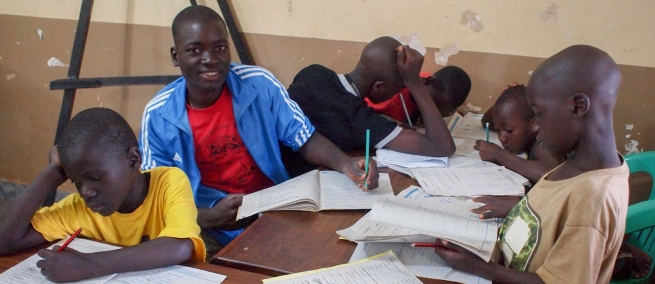
2023 theme is ‘Reach every victim of trafficking, leave no one behind.’ NEW ROCHELLE, NY (July 30, 2023) Salesian Missions, the U.S. development arm of the Salesians of Don Bosco, joins humanitarian organizations and countries
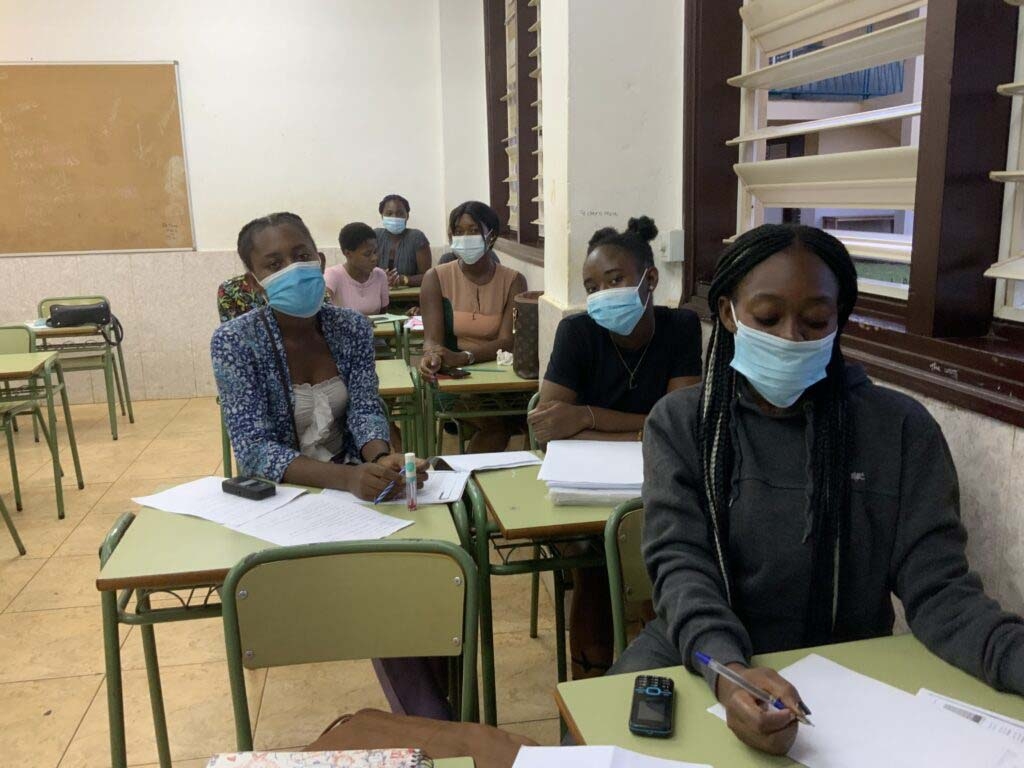
Salesian missionaries provide support to the parents of the children in their programs. NEW ROCHELLE, NY (June 1, 2023) Salesian Missions, the U.S. development arm of the Salesians of Don Bosco, joins humanitarian organizations an
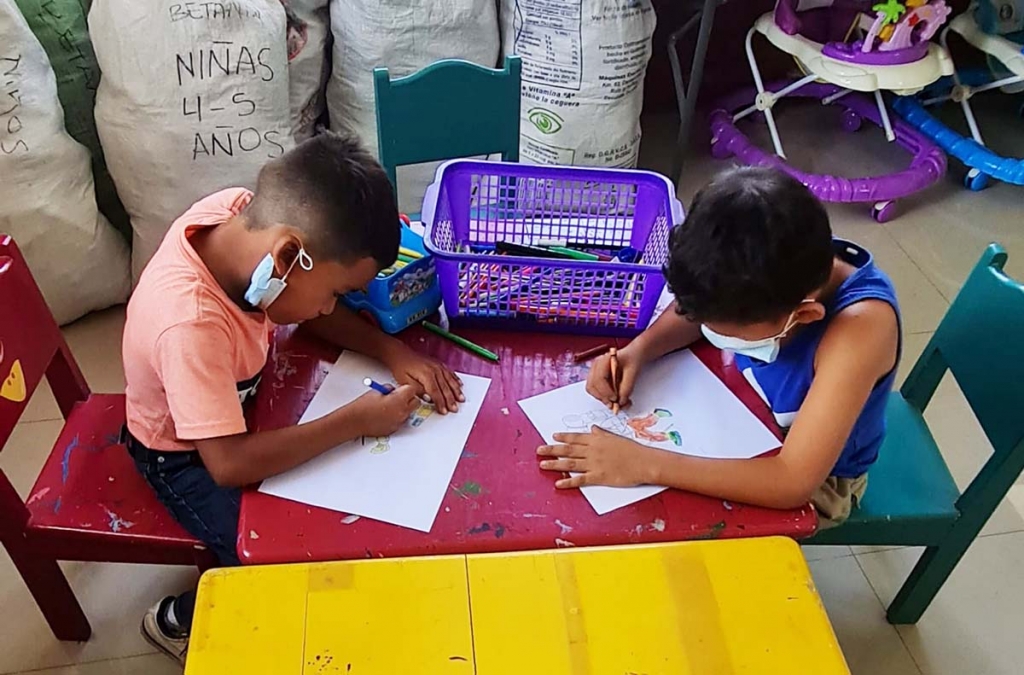
Youth often leave their homelands in search of employment, education and a better way of life. NEW ROCHELLE, NY (Dec. 18, 2022) Salesian Missions, the U.S. development arm of the Salesians of Don Bosco, joins humanitarian organiza
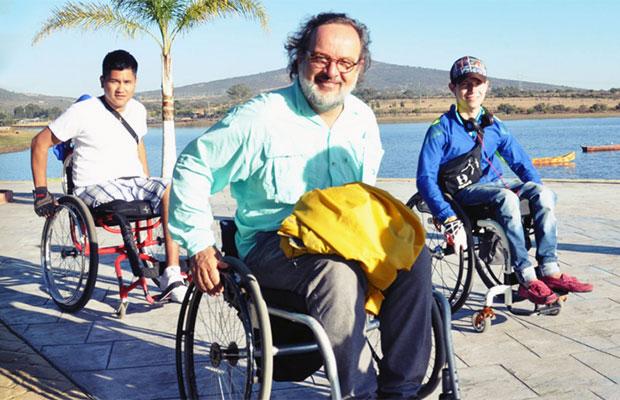
Almost 1 billion people living with a disability, according to the World Health Organization. NEW ROCHELLE, NY (Dec. 3, 2022) Salesian Missions, the U.S. development arm of the Salesians of Don Bosco, joins humanitarian organizati
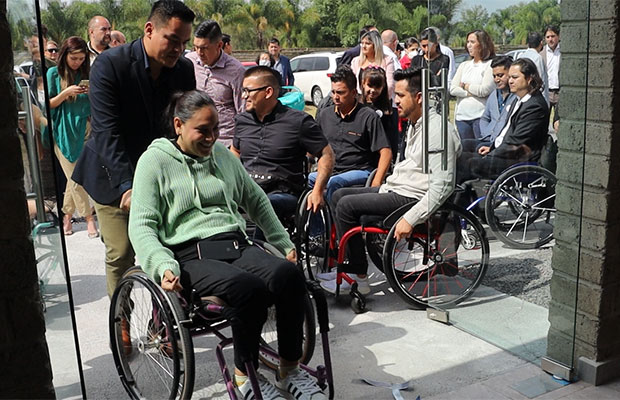
In 2010, Father Jaime Reyes Ratana formed Don Bosco on Wheels to provide wheelchairs and social support to a small group of youth with disabilities in Guadalajara, Mexico. This program has become so successful that Mexico’s gove
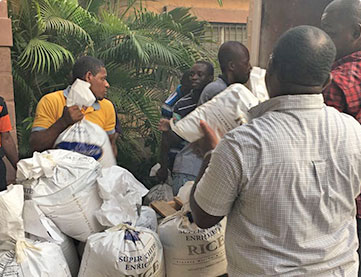
Salesian Missions includes agriculture in its vocational training programs – to ensure that youth of Rwanda learn better agricultural practices as well as keep the school self-sustaining in the face of the country’s food shortages.
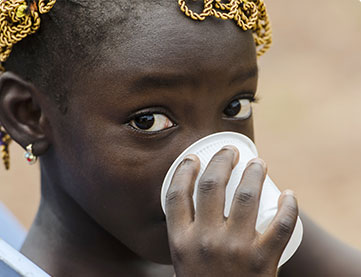
Salesian Missions includes agriculture in its vocational training programs – to ensure that youth of Rwanda learn better agricultural practices as well as keep the school self-sustaining in the face of the country’s food shortages.
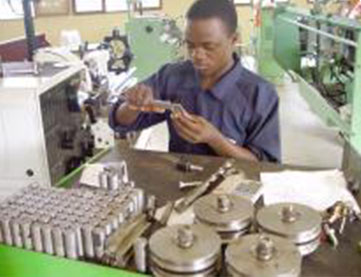
Salesian Missions includes agriculture in its vocational training programs – to ensure that youth of Rwanda learn better agricultural practices as well as keep the school self-sustaining in the face of the country’s food shortages.